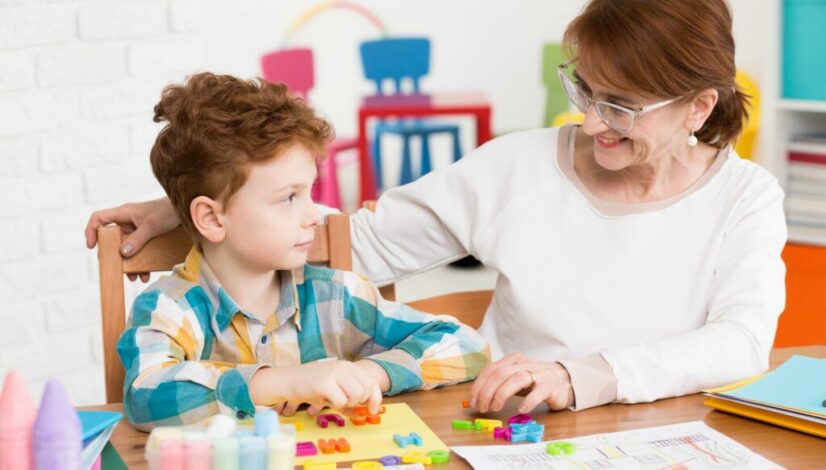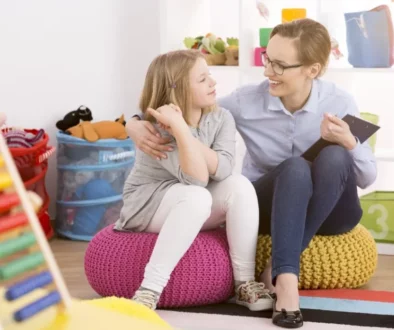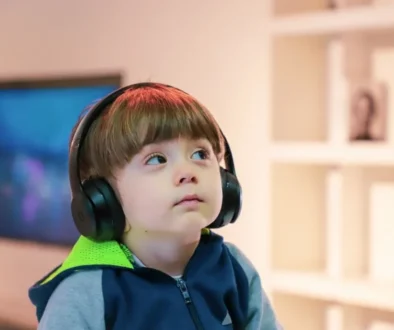Expressive vs. Receptive Language: Improving Language Skills in Children
An estimated 5-10% of people in the U.S. experience a communication disorder of some kind. As a parent, you need to help your child develop expressive and receptive skills and ensure they’re on track.
While all children are different, there are certain speech and language milestones they should be reaching as they grow. If they seem to be lagging behind other children their age, you should put extra effort into helping them improve. You may also want to consider whether they may have a communication disorder of some kind.
In this guide, we’ll help you understand the differences between expressive vs receptive language and how you can improve language skills in children.
What Is Expressive Language?
As you may expect, expressive language refers to outgoing language. It’s what one uses to express themselves to others when speaking. In addition to this, expressive language includes the formation of thoughts and the ability to get them across to others. This includes word choice as well as vocal tone, facial expressions, and more.
Children who have difficulty with expressive language processing may have trouble with vocabulary, grammar, and using gestures to express themselves.
What Is Receptive Language?
Receptive language refers to incoming language. It is the ability to understand what another person is trying to express. This includes the ability to listen and understand the information that someone else is relaying to them through their voice.
A child who has problems with receptive language may misinterpret questions and sentences. They may have a hard time processing the meaning of simple instructions.
Strategies to Improve Language Learning
Many things can help your child with expressive and receptive language. Here are some of the main strategies you can take.
Play
Allowing your child to play often is one of the best ways to help with language development. Play that involves the imagination as well as listening and verbal skills can be incredibly useful. Playing helps children understand the things around them and can give them a reason to use language that they find fun and interesting.
Social Practice
More social interactions should also be encouraged to promote receptive and expressive language skills. Social interaction can allow your child to get accustomed to social norms. It helps them practice listening to others and gives them a chance to speak.
Gestures and Body Language
Using speech that includes gestures, facial expressions, and body language can be helpful for children with limited language skills. Gestures can help to deepen understanding. They can help improve communication so that vocabulary is learned more easily.
Using verbal language along with written language can also be helpful for certain children as well. It can help get the meaning across to those who have a hard time understanding the meaning behind speech.
Daily Routines
Routines can be incredibly useful when it comes to learning language skills. By doing the same things consistently and using language simultaneously, children will learn to associate vocabulary with what they’re doing.
Especially when matched with gestures and written communication, daily routines can be a huge asset when teaching children language. Consider introducing some routines and repetition into their lives to help them improve.
Music
Using music can also be helpful for teaching a child both receptive and expressive language skills. Music can do a great job of getting a child’s attention and can give them a way to practice listening and verbalizing speech in a fun way.
Songs are also repetitive, so they can help a child repeat various speech and listening patterns. Because music and songs consist of routine and are repetitive, they can help reinforce new vocabulary and the meaning of words more easily than other tools and techniques.
Vocabulary
Helping a child expand their vocabulary is important for helping them improve their expressive and receptive language skills. Leading by example and modeling vocabulary for them can be helpful ways to do this.
Vocabulary serves as building blocks for full sentences and can help increase a child’s understanding. Take the time to read to your children and teach them new words to ensure they’ll have the best chance of developing their language skills in a timely manner.
Language Disorders and Autism
Many children have a receptive or expressive language disorder. A child may experience one or the other or have both at the same time. These disorders are usually diagnosed between 3 and 5 years old.
There are many reasons why a child may have problems with learning receptive or expressive language skills. These disorders could be due to Down syndrome, a brain tumor, brain injury, or another condition.
Expressive language disorders and receptive language disorders are commonly associated with autism in children. In addition to auditory processing issues, it may be difficult for children with autism to communicate and comprehend language in the same way that others of their age can.
Keep in mind that not all children who have language disorders have autism. You should get a diagnosis to determine the cause of language disorders in your child.
If your child does have autism, you should work hard to provide them with the skills and practice they need to develop their language skills appropriately. Set a regular routine for helping your child practice various language skills and ensure that they get a grasp on them as well as possible.
Although your child may be behind compared to other children, you can improve their skills. When parenting a child with autism, you should use reinforcement and follow the strategies listed above to help them learn.
Understanding Expressive vs Receptive Language
If your child is having difficulty learning, it’s important to understand the differences between expressive vs receptive language. While some children will have trouble with both types of language learning, some may only be lacking in one or the other. Be sure to choose the right strategies for their specific disorder to give them the best chance to improve.
If your child is having language development problems, it’s important to see a professional and consider whether they may have autism. Developmental Pediatrics has served Texas since 2000 and has years of experience. We can help diagnose your child for autism based on the American Psychiatric Association’s DSM-V criteria.
Ready to learn more? Reach out to us today to request an in-person appointment for consultation or evaluation.



